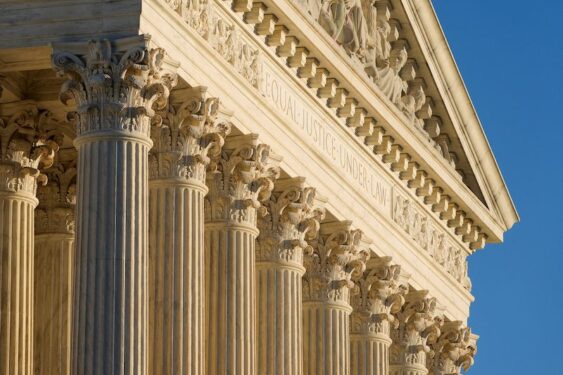PROSPECT HEIGHTS — The United States Conference of Catholic Bishops filed a friend-of-the-court brief on March 2 in support of a former high school football coach who sued a school district after he lost his job in 2015 for refusing to stop kneeling and praying on the fifty-yard line after games.

Coach Joseph Kennedy sued the Bremerton School District in Washington State in 2016 over its stance that he couldn’t continue his post-game ritual. The Supreme Court agreed to take up the case, Kennedy v. Bremerton School District on Jan. 14.
“The constitution exists to protect public expressions of faith, not to stop Americans from praying in public,” Lori Windham, senior counsel at the Becket Fund for Religious Liberty said in a March 2 statement. “The idea that high school football players can handle a tough game, but not the sight of someone kneeling in prayer at the end of the night is ridiculous.”
Becket filed the amicus brief on behalf of the USCCB.
Lower courts have sided with the Bremerton School District. A federal district court in 2016 denied Kennedy’s preliminary injunction seeking restoration of his job and an order requiring the school to allow him to pray silently on the 50-yard line after each football game. In 2017, the Ninth Circuit federal court sided with the district court’s summary judgment in favor of the school district.
Kennedy, a Christian, coached at Bremerton High School — a public school — from 2008-2015. He began the practice of kneeling and praying at midfield in his first year. It began as a roughly 30-second individual quiet practice to “offer a brief, quiet prayer of Thanksgiving for player safety, sportsmanship, and spirited competition,” according to court documents.
The practice grew and evolved over time. What started as an individual act, eventually grew into motivational speeches at midfield after the game that included students, coaches, and other attendees from both teams. The speeches often delivered a message containing religious content.
The school district learned that Kennedy was praying on the field in September 2015 and launched an investigation into the practice. The school district’s superintendent Aaron Leavell then advised Kennedy that he could continue to give the inspirational talks, but “they must remain entirely secular in nature, so as to avoid alienation of any team member.”
Kennedy capitulated at first, but ultimately decided to resume the practice and made his intentions clear through various forms of media putting a national spotlight on the situation.
The school district responded that it would accommodate making a private location available for Kennedy — in the school, athletic facility, or press box — for him to pray before and after games. He could also wait until the stadium had emptied. Kennedy declined and continued his practice.
Kennedy was ultimately placed on administrative leave on October 26, 2015. He did not apply for a 2016 coaching position after the season ended. He filed the lawsuit in August 2016, claiming that his rights were violated under the First Amendment and Title VII of the Civil Rights Act of 1964.
“Kennedy’s attempts to draw nationwide attention to his challenge to the District showed that he was not engaging in private prayer,” the Ninth Circuit wrote in its 2017 summary. “Instead, he was engaging in public speech of an overtly religious nature while performing his job duties.”
In response to the Supreme Court taking the case, Rachel Laser, the head of Americans United for Separation of Church and State, which represents the Bremerton School District, called on the Supreme Court to protect the First Amendment rights of students by affirming that the school decision did the right thing.
“The facts of this case are clear: High school players felt pressured to join their coach’s public prayers at the 50-yeard line at public high school football games,” Laser said in a Feb. 23 statement. “Our country’s foundational principle of church-state separation means that no one should ever have to choose between their religious freedom and being part of the team.”
Windham, meanwhile, argues the Supreme Court’s decision is clear.
“We hope that the Supreme Court confirms what everyone with common sense knows: When a Christian coach kneels in prayer, or a Sikh schoolteacher wears a kirpan, or a Muslim principal fasts for Ramadan, they are expressing their faith, not establishing a religion,” Windham said.
The Supreme Court previously declined to review the case in 2019 before it accepted another appeal from Kennedy in January. The case is expected to be argued this spring.
